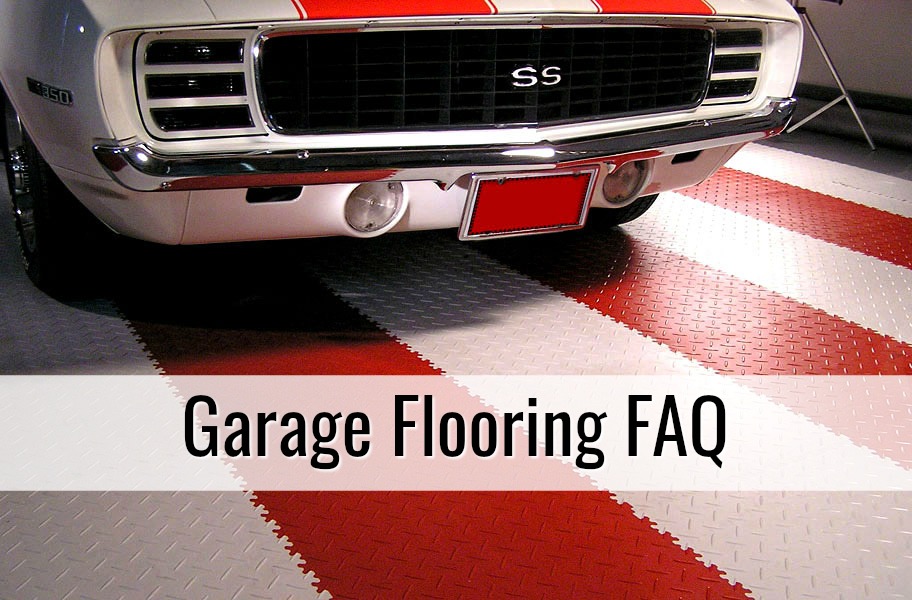
Garage Flooring FAQ: Your Questions, Answered
Garage flooring can be a tricky subject to master. That’s why we’ve compiled some of our best questions and answers to help your buying process. Now you can make the best (and most informed!) decision for your garage.
Many people spend their days not knowing there’s a great way to revamp your garage into a liveable, usable and stylish space. Enter garage flooring, which is a universe of color and durability. Like a universe, it can be a big place to explore, which is why we’ve put all your most pressing questions into one place.
If you’re just starting your search for garage flooring, or have maybe just made a purchase, this guide will help answer our most frequently asked questions.
To start out, let’s go over our basic guide to garage flooring types:
Use & Durability
When you’re buying a garage floor, you probably want to make sure it holds up to what you have in mind. Here, we answer a few of your more pressing questions about garage flooring.
Can I use a car jack on garage tiles?
The answer here depends on what type of tile you own.
Our hard tiles, such as our Nitro Tiles, cannot withstand the weight of a car jack directly on them. Instead, we recommend the use of plywood or sheet metal under the car jack to help distribute the weight evenly across tiles. This prevents damage to your garage tiles.
Alternatively, use the car jack directly on concrete.
On the other hand, soft PVC garage tiles are car jack approved. Since they have the ability to flex, these tiles will not be damaged under the weight of a car jack.
Can garage tiles be installed over radiant heat?
Hey, sometimes winters are cold and garage tiles aren’t just installed in the garage. They’re really great for other places too.
The good news is all of our garage flooring products can be installed over radiant heating coils. However, we do recommend you follow the radiant heating manufacturer’s installation instructions when installing our flooring over it.
Is garage flooring durable in extreme heat or cold?
The short answer is yes! All of our garage flooring products are built to withstand extreme heat or cold. In fact, we’re based out of Arizona, where it’s not uncommon for our garages to rise above 120 degrees. Yikes.
Our garage flooring has been installed in the hottest of climates (like ours!) and also in extreme cold. The heat, nor snow, will damage garage flooring.
However, your garage flooring will experience natural expansion and contraction depending on the temperature.
What is the difference between rolling/rotating weight and static weight?
Rolling weight is a weight that is moving across the floor, such as your vehicle driving into your garage. Meanwhile, static weight refers to the weight of the vehicle when not in motion. These loads are measured in pounds per square inch (PSI).
If the rolling weight or static weight exceeds what your garage tiles can handle, your flooring could be damaged and require replacement. To disperse the weight of heavy static loads and protect your flooring, you may be able to install a 1/2″ plywood sheet cut to fit under your vehicle.
How does snow and water drainage from cars affect garage flooring?
Water and snow will not damage garage flooring. Depending on which flooring you have the water will either drain out of the garage or evaporate.
Garage flooring rolls used in sloped garages will allow water and snow to melt and drain out of the garage. Any residual moisture will evaporate.
Vented garage tiles easily allow melted snow and water to pass through garage tiles to drain and evaporate.
Garage tiles interlock very tightly, essentially making these tiles water tight. In most instances water will not penetrate through your floor, but if it does, it will simply evaporate. The rest will drain out of your garage like normal.
If the garage is not graded to allow water to flow out of the garage or does not have a drain, over time the water will evaporate. Basically, any water left in your garage from snow or rain will not damage you garage flooring.
Does trapped water create mold and mildew under my garage flooring?
Rarely does water get “trapped” beneath your floor. If water does seep beneath your floor, it will evaporate. Our garage flooring is mold and mildew resistant, so this should not be a concern.
If your garage is prone to sweating, or if you’re installing in a moisture prone basement, we do recommend sealing the concrete if you’re installing vinyl garage rolls.
If you’re installing over concrete that sweats, you may find some white “stuff” under your garage flooring. This is merely minerals left over from evaporating water.
| Related Content >> The Best Garage Flooring Options |
Shopping
Shopping for garage flooring can be a confusing and daunting process, but it doesn’t have to be! Here are the main things to know when shopping for garage flooring.
How much does garage flooring cost?
The answer to this question depends on what type of garage flooring you’re hoping to buy. The good news is we offer free shipping on all garage flooring. That means you’re saving some major bucks when buying flooring for your garage.
To make this easier, I’ve made a chart detailing the cost of garage flooring by type:
| Type | Price by Sqft |
| Hard Plastic Tiles | $$ |
| Soft PVC Tiles | $$$ |
| Garage Rolls | $ |
SHOP GARAGE TILES SHOP GARAGE ROLLS
Do garage tiles need underlayment to reduce sound and shifting?
All of our garage flooring can be installed directly on concrete, but the use of an underlayment can be used for both sound reduction and shifting.
Our hard plastic tiles, in particular, can be loud against the concrete floor, and many people prefer purchasing rubber underlayment to reduce the noise.
If shifting does occur, rubber underlayment is often used to prevent this.
| Related Content >> Garage Flooring Buying Guide |
Installation
We’ve got a few tips and tricks for installing your new garage flooring.
How can I cut my garage flooring?
Using a sharp utility knife, cut garage rolls. To keep a straight edge, you can even use a ruler to help.
PVC garage tiles are also typically cut using a utility knife. If you have hard plastic tiles, a tile cutter or a power saw with a fine-toothed blade will be necessary. If using a power saw or tile cutter, be sure to use water or silicone to keep the plastic tiles from melting.
How do I fix buckling from expansion / contraction?
If your garage faces the sun (such as a south, east, or north facing garage) your garage tiles may experience buckling from expansion and contraction.
There are two solutions to this issue:
First, you can use vented garage tiles where the sun hits the garage, such as at the entryway. Vented garage tiles experience less contraction and expansion.
Another option is using glue to secure the tiles that will experience the most heat. This will keep your garage floor stable.
When installing your garage flooring, you’ll want to create an expansion gap around the perimeter of the floor to further prevent buckling. We recommend a ¼” expansion gap for our garage rolls, and a gap the thickness of the tile for our garage tiles.
How do I keep garage tiles from shifting?
To keep any of our hard plastic tiles in place due to added torque, we recommend adding an underlayment under the floor.
You can add the underlayment under the first few rows or the whole floor.
| Related Content >> How to Design Your Dream Garage |
Cleaning & Maintenance
Everyone knows garages get dirty! How to clean garage flooring is one of our most popular questions. We’ll answer that one, and a few other great questions here!
How do I clean my garage floor?
It’s super easy to keep your new garage flooring clean!
Just like a regular floor, we recommend sweeping dirt, dust, and debris out of the garage with a broom.
Also, you can mop your garage floor with a mild soap and water solution. Some common soaps include dish detergents and tide laundry detergent.
Will my garage floor stain?
Street tar can cause staining to light colored tiles and in most instances this staining can be remedied with a cleaner called Purple Power. If you have performance tires, staining can occur with any color other than black.
White or light garage tiles can stain from street tar and performance tires. Because of this, many of our customers include “runway” tiles or a black parking area to avoid this issue.
| Related Content >> Maintaining Garage Floor Tiles: Remove and Prevent Stains |
Can garage tiles be power washed?
Garage tiles are super durable and can withstand the use of a power washer on them.
How do I replace a damaged garage tile?
New tiles can replace old tiles. We suggest you begin by lifting up each tile in a row or column until you are able to remove the damaged tile. Once replaced, simply lock each tile back into place.
For PVC tiles, simply pull up the old tile and replace it with a new one.
Of course, we’re also happy to help with any issues relating to your new garage flooring, so feel free to give us a call if you ever need assistance.
| Related Content >> Rubber Flooring FAQ: Your Questions, Answered |
Ready to get started?
SHOP GARAGE TILES SHOP GARAGE ROLLS














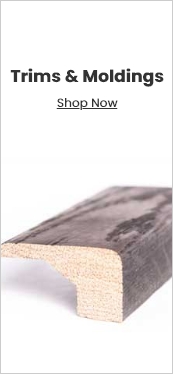


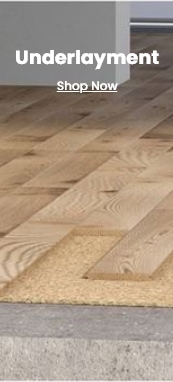

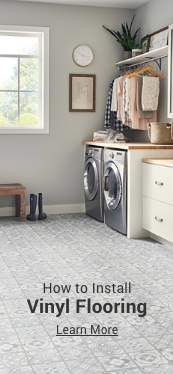

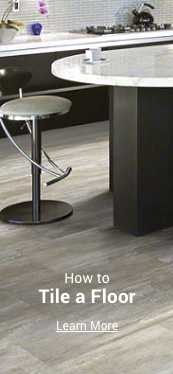

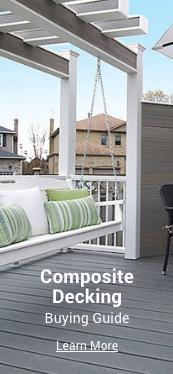


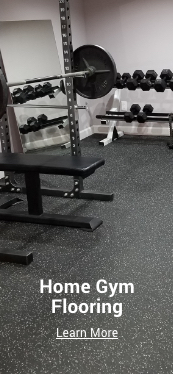
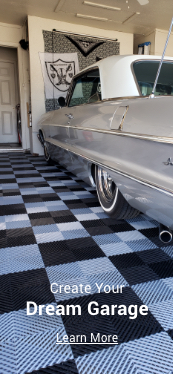

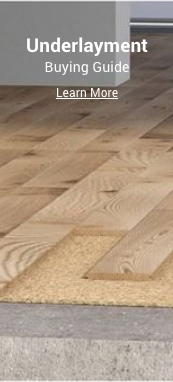

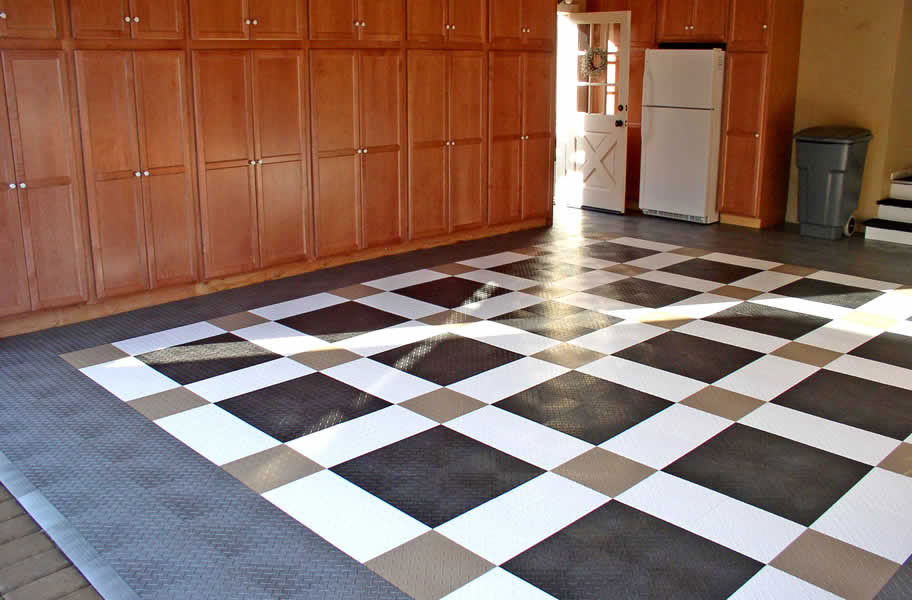
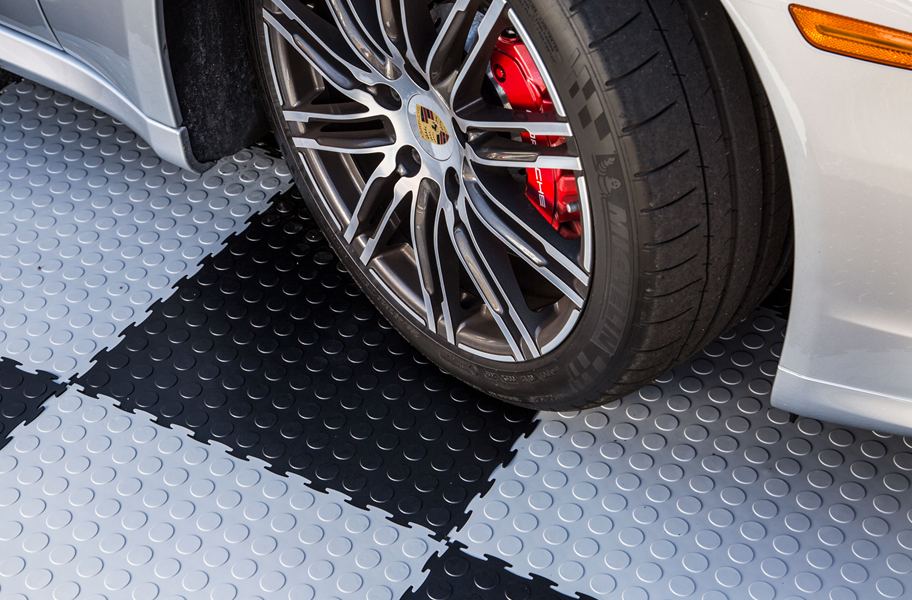
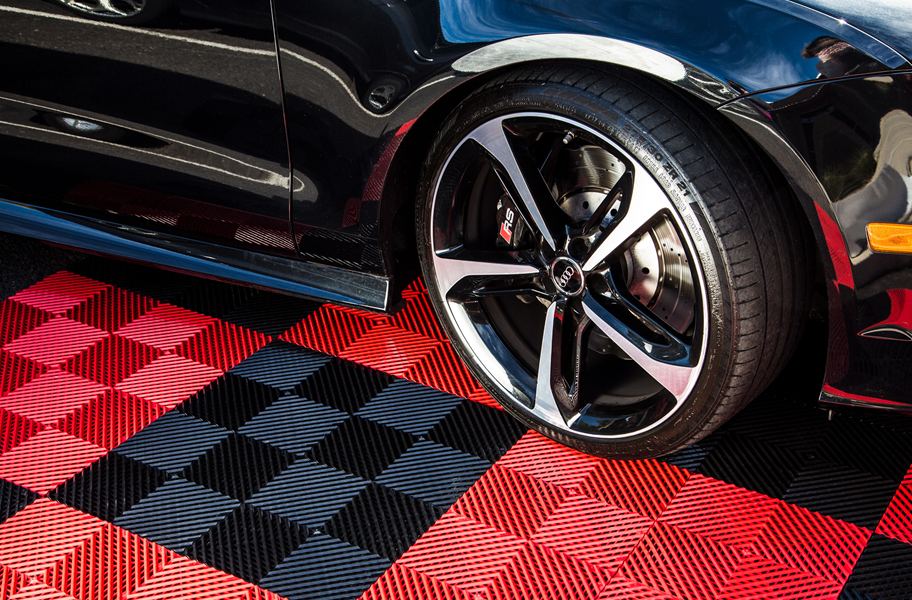
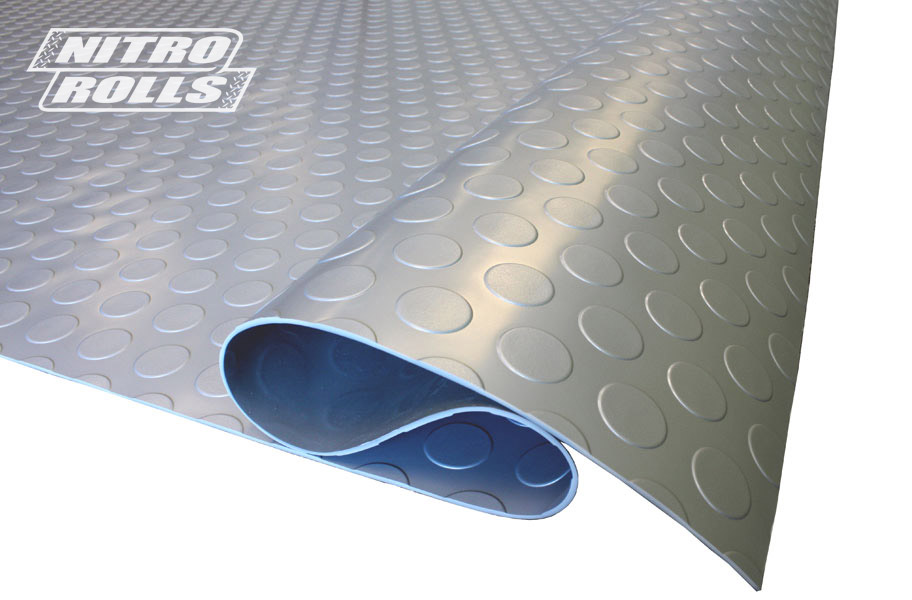
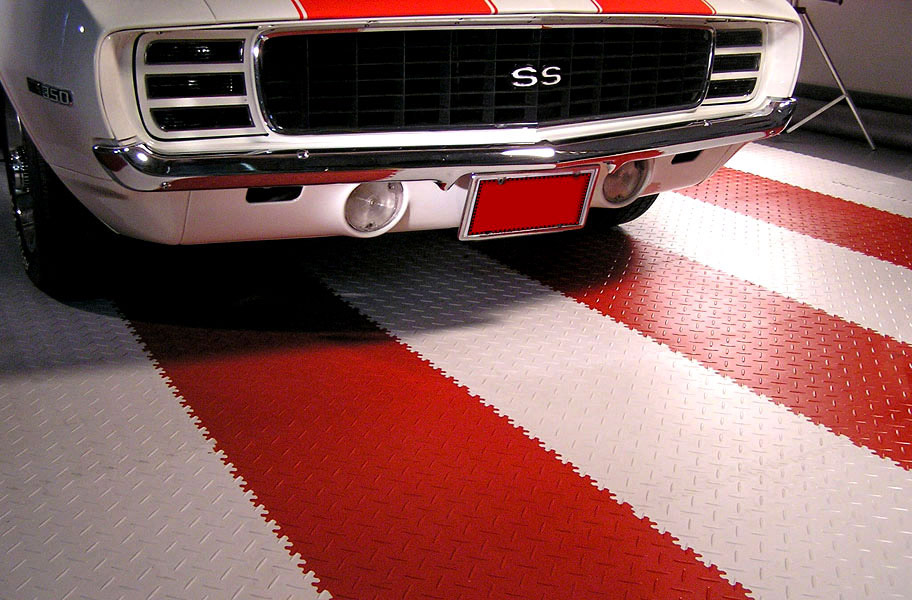

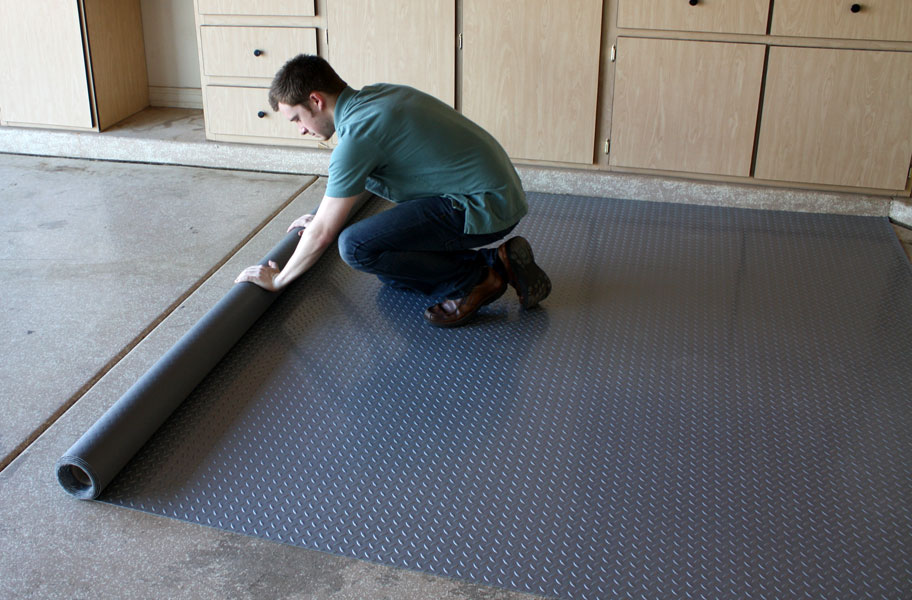
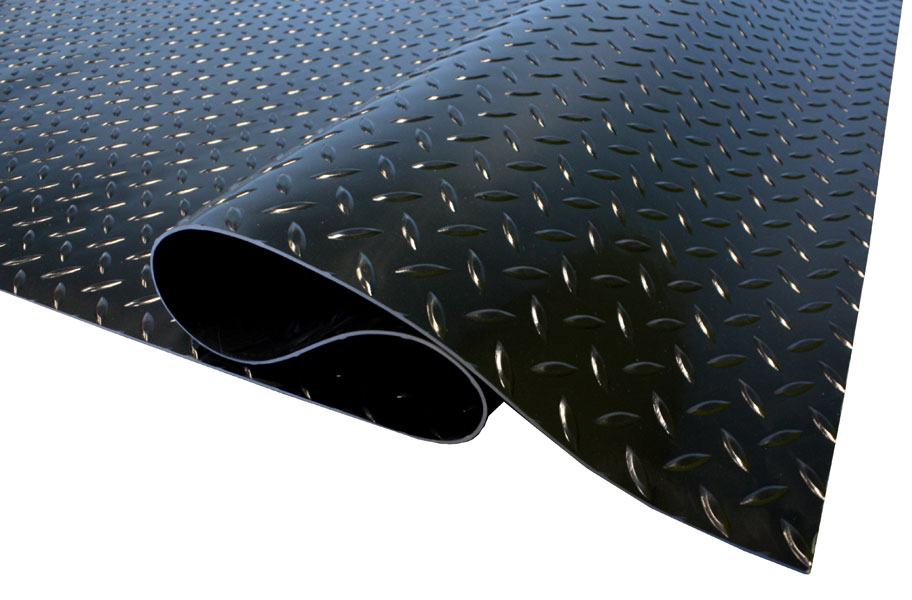
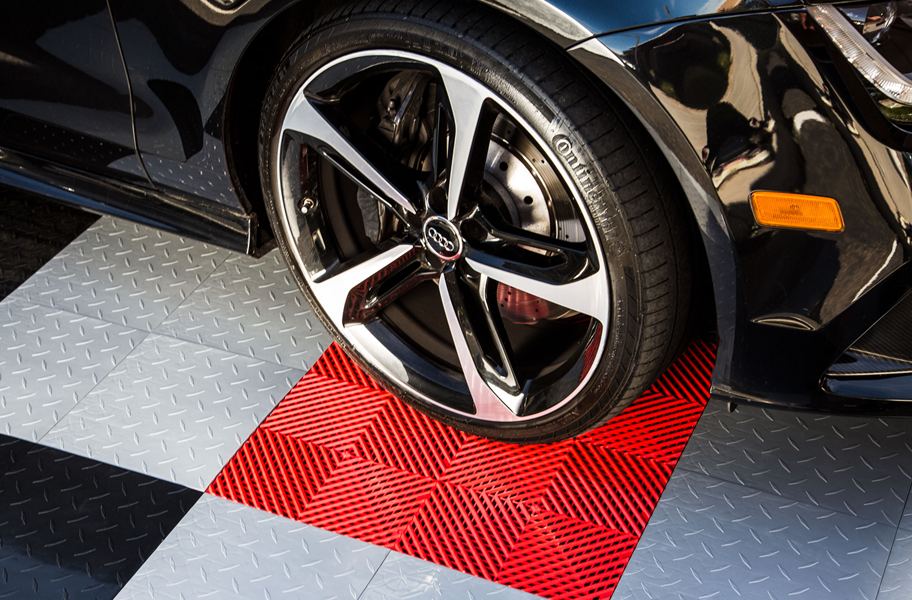
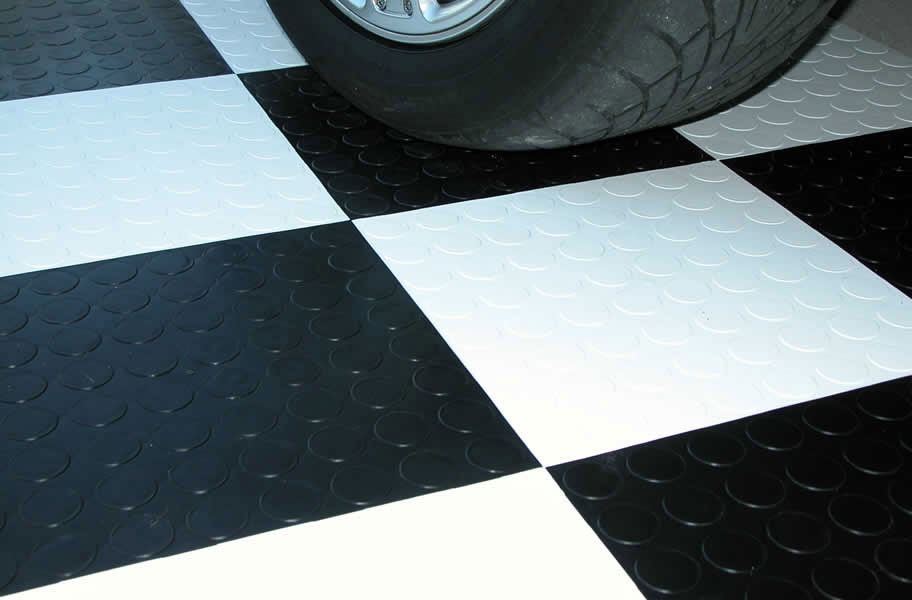
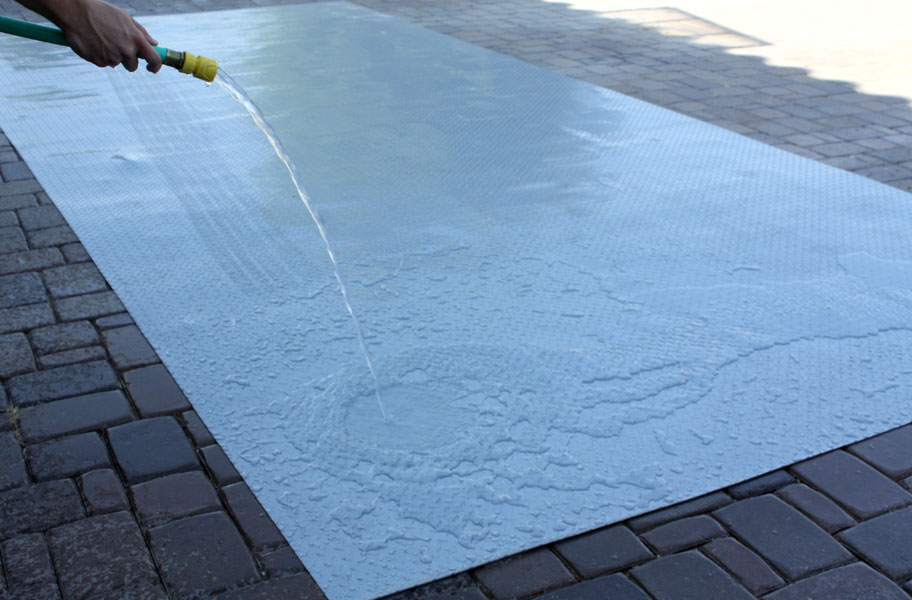
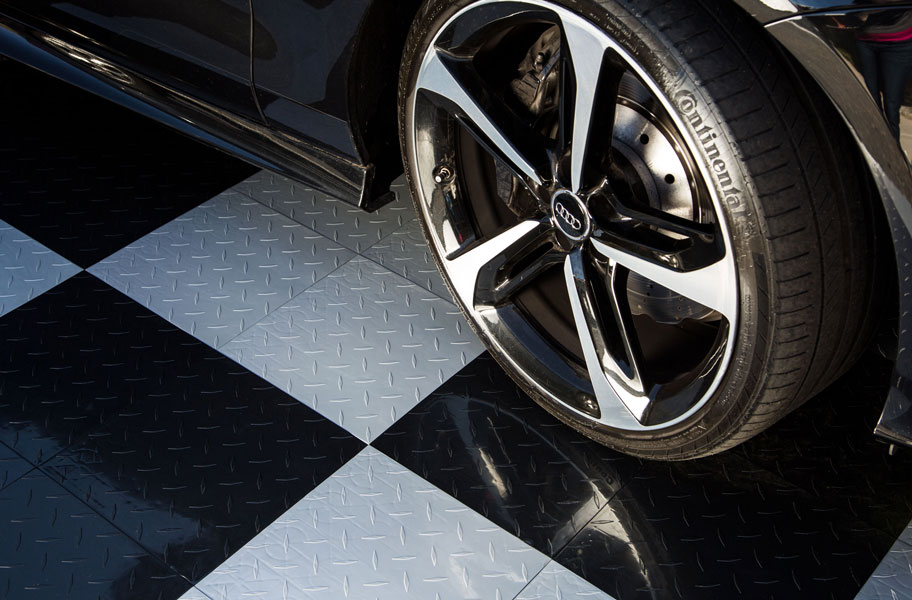
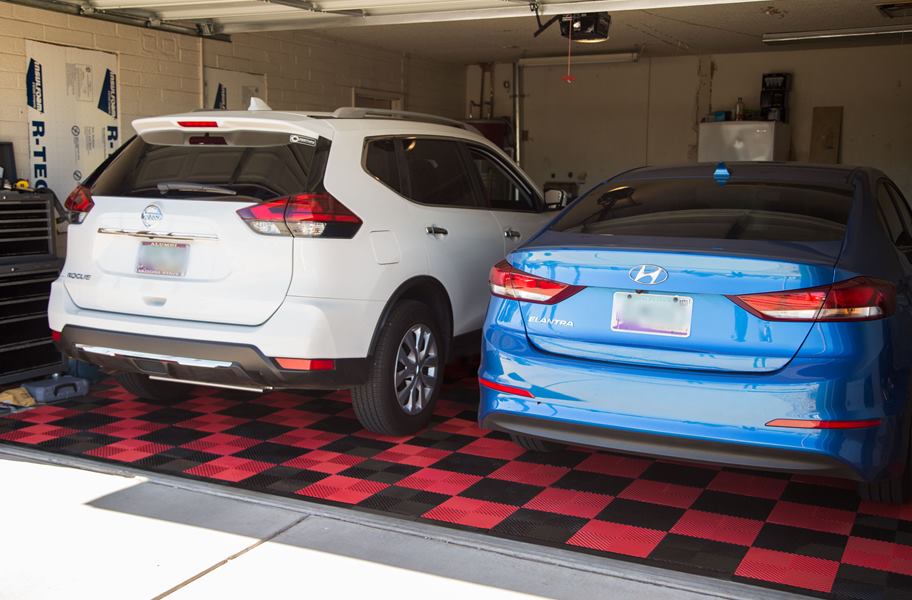


Would you advise putting any type of rubber flooring or sealing the floor, in a garage at the beach? The concrete is wet sometimes from the ground and moisture in the air, & saltwater from ocean overflow. Any way to at least seal the flooring, so moisture won’t come in to the area? Any other ideas for keeping the area dry?
Thank you,
Lynn
Hello Lynn,
Thank you for your question! We’d be happy to help you figure out the best flooring for your garage. First, we’d like to get more information about your garage so we can give you the most accurate recommendation. If you call us at (866) 416-6388, you can speak with a flooring specialist who will answer your questions.
Thank you, and please reach out if you have any questions.